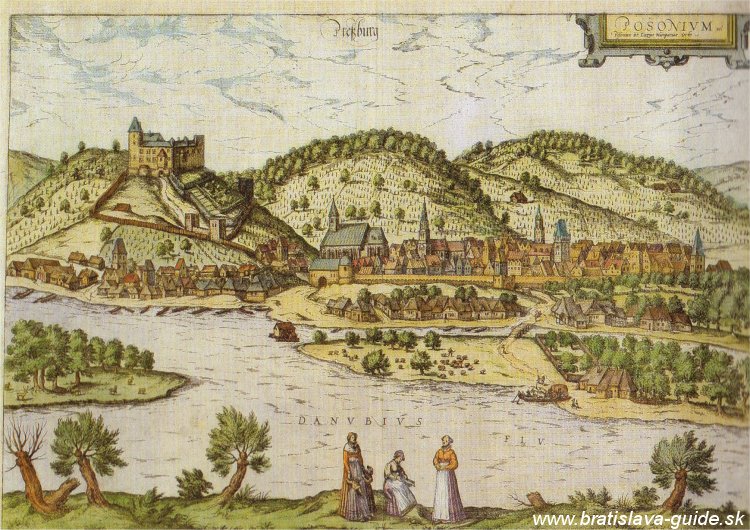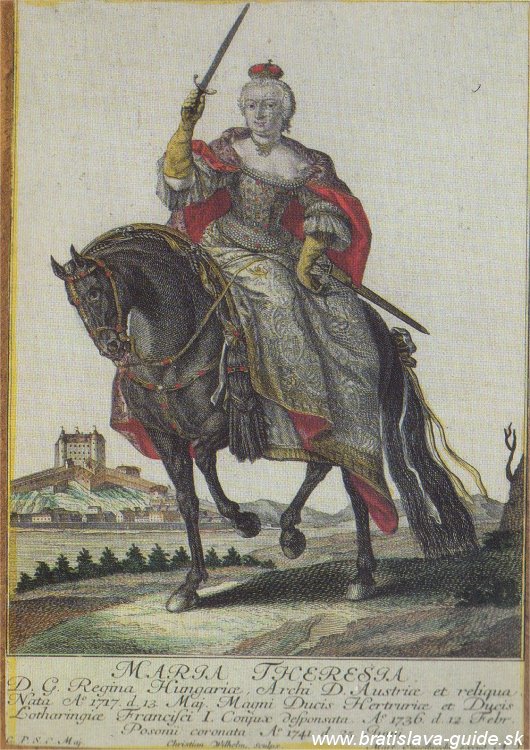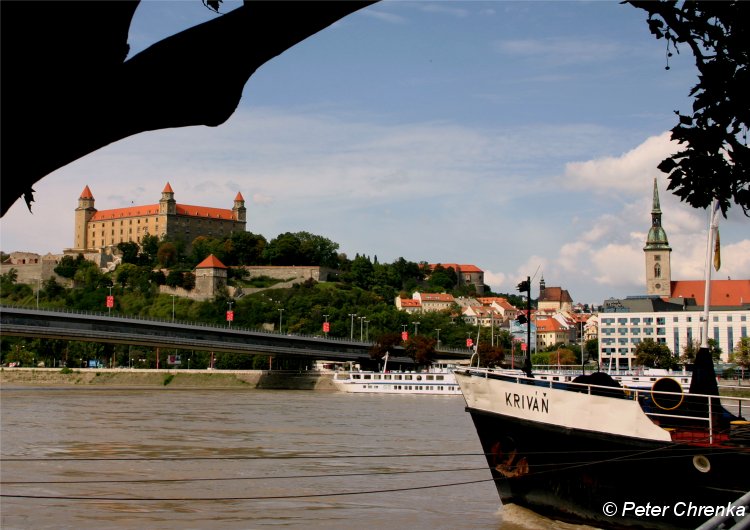 The foundation of Bratislava like strategic center for the economy, the culture and the political life, in contrast and competition to others important European centers, has not been a case. Its position was very favorable, because it was the crossroads of several trade routes, and this was important because it arises towns. According to archeological research of the first colonies have originated in the Paleolithic, that is 5000 years B.C. Later, the medieval city was founded on the fortified center of the Celts (Oppidium). This Celtic settlement it was even three times larger than the medieval city. In the 5th century AD, after a brief period of a Roman settlement in the area where now stands Bratislava settled the first settlements of Slavs. The earliest historical sources that speak of the Bratislava dating back to 907, then called Bresalauspruch.
The foundation of Bratislava like strategic center for the economy, the culture and the political life, in contrast and competition to others important European centers, has not been a case. Its position was very favorable, because it was the crossroads of several trade routes, and this was important because it arises towns. According to archeological research of the first colonies have originated in the Paleolithic, that is 5000 years B.C. Later, the medieval city was founded on the fortified center of the Celts (Oppidium). This Celtic settlement it was even three times larger than the medieval city. In the 5th century AD, after a brief period of a Roman settlement in the area where now stands Bratislava settled the first settlements of Slavs. The earliest historical sources that speak of the Bratislava dating back to 907, then called Bresalauspruch.
 During the 10th and 11th century the territory of Bratislava became a little part of the newborn Hungarian state. In the 1291 Hungarian king Andrew III. granted to Pressburg (Bratislava) i "the citizens privileges", the title of independent city, the autonomy in the choice of own "mayor", and others important prerogatives like the possibility to develop own free economy and independent market. Bratislava was declared a free royal city in 1405 by King Sigismund of Luxembourg, which allows the city to use its coat-of-arms in 1436.
In the 1465 the king Matthias Corvinus founded the first Hungarian and Slovak university (Accademia Istropolitana).
During the 10th and 11th century the territory of Bratislava became a little part of the newborn Hungarian state. In the 1291 Hungarian king Andrew III. granted to Pressburg (Bratislava) i "the citizens privileges", the title of independent city, the autonomy in the choice of own "mayor", and others important prerogatives like the possibility to develop own free economy and independent market. Bratislava was declared a free royal city in 1405 by King Sigismund of Luxembourg, which allows the city to use its coat-of-arms in 1436.
In the 1465 the king Matthias Corvinus founded the first Hungarian and Slovak university (Accademia Istropolitana).
 After the Turkish occupation of Buda, in the 1536 Pressburg became the capital city of Hungary. During more than two hundred years in the gothic St. Martin's Cathedral have been crown 11 kings and 8 queens. The most famous monarchs between sovereigns crowned here has been sure the Emperor Maria Theresia. Under its reign the city woke up, and knew its more flourishing period. The aspect of the city changed remarkablly, with the construction of sumptuous palaces that still today can be admire to you. In this period the city was attended also by famous personages of music, like as an example Haydn, Mozart, Beethoven and later also by Listz.
After the Turkish occupation of Buda, in the 1536 Pressburg became the capital city of Hungary. During more than two hundred years in the gothic St. Martin's Cathedral have been crown 11 kings and 8 queens. The most famous monarchs between sovereigns crowned here has been sure the Emperor Maria Theresia. Under its reign the city woke up, and knew its more flourishing period. The aspect of the city changed remarkablly, with the construction of sumptuous palaces that still today can be admire to you. In this period the city was attended also by famous personages of music, like as an example Haydn, Mozart, Beethoven and later also by Listz.
In the 19th century the Pressburg city was witness of some important historical vicissitudes. In 1805 after the battle of the three emperors near Austerlitz (it Slavkov in the Boemia puts into effect them) was signed in exactly Hall of the Mirrors of the Primate's Palace the peace between Napoleon Bonaparte and the Austrian Emperor Francis I (note that the Peace of Pressburg). Forty years after it was signed in the same room, the document that abolished slavery.
 On 1 January 1919 the city of Bratislava with the Slovak name, became part of the new Czechoslovakia. But only in 1968, Bratislava became the capital of Slovakia, after the signing of the law which established Czechoslovakia as a federation of two separate republics (the Czech Republic and Slovak Republic). The division was then permanently on 1 January 1993, when Bratislava became the capital of the independent Slovak Republic.
On 1 January 1919 the city of Bratislava with the Slovak name, became part of the new Czechoslovakia. But only in 1968, Bratislava became the capital of Slovakia, after the signing of the law which established Czechoslovakia as a federation of two separate republics (the Czech Republic and Slovak Republic). The division was then permanently on 1 January 1993, when Bratislava became the capital of the independent Slovak Republic.




